
Tag Archives: SMEs


Progress Report – March 2020: The Alison Rose Review of Female Entrepreneurship
Progress Report – March 2020: The Alison Rose Review of Female Entrepreneurship
One year on, this update finds that NatWest’s “Alison Rose Review of Female Entrepreneurship” has already had an impact on women entrepreneurs in the UK, with the Investing in Women Code adopted by 22 financial institutions in the country; NatWest dedicating GBP 1 billion (US$1.2 billion) in ring-fenced debt funding for women-led businesses; and Local Enterprise Partnerships established across the country.

The Economics of Banking on Women: 2019 Edition
The Economics of Banking on Women: 2019 Edition
This annual report is based on information gathered in the Alliance’s Women’s Market Analytics Survey — the only collection of global banking data measuring the performance of financial institutions serving the female economy, with 5 years of performance data and over 400 data points per institution. Consistent with the trends that have emerged in previous reports, this third edition of “The Economics of Banking on Women” highlights a vast opportunity to better serve the Women’s Market and a strong business case for solutions tailored for women, with a significant uptick in members providing such solutions.

The Economics of Banking on Women: 2018 Edition
The Economics of Banking on Women: 2018 Edition
This report is based on information gathered in the GBA’s Women’s Market Analytics Survey — the only collection of global banking data measuring the performance of financial institutions serving the Women’s Market, with 4 years of performance data and over 400 data points per institution. This second edition of the report bears out several trends that emerged in the previous edition, highlighting the strong business opportunity the Women’s Market represents.
Update: A previous version of this report was missing labels on one graph. We have corrected the error in this edition.

GBA Case Study: NatWest
GBA Case Study: NatWest
The fifth in the GBA’s Case Study series on best practice banks features Women in Business champion NatWest, part of the Royal Bank of Scotland. The bank has found great success through its ability to leverage partners in the ecosystem to deliver real value to its women clients.

Presentation: Gender Intelligent Banking Webinar
Presentation: Gender Intelligent Banking Webinar
This webinar explored key insights from new research on 12 GBA member banks. The findings prove a strong case for gender-intelligent strategies, and also challenge the industry’s basic assumption that gender-neutral banking works.

Entrepreneurship at a Glance 2016
Entrepreneurship at a Glance 2016
This OECD publication presents an original collection of indicators for measuring the state of entrepreneurship and its determinants, and provides new data on SMEs and SME productivity, plus indicators to monitor gender gaps in entrepreneurship.

RBS Supplier Diversity
RBS Supplier Diversity
This video explains RBS’s Supplier Diversity & Inclusion strategy and Code of Conduct.
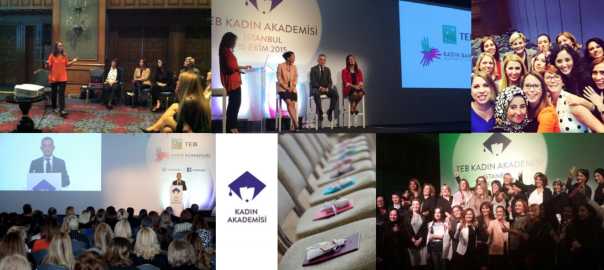
GBA Case Study: TEB
GBA Case Study: TEB
This third Case Study in the GBA series highlighting members’ Women’s Market success looks at TEB in Turkey, which has built its reputation among women SME owners as a “consultant bank” through its comprehensive non-financial services offerings. (Version en español)

TEB Women Banking – Video 2
TEB Women Banking
This video from TEB’le Kadin shows why TEB supports women-owned/led SMEs in Turkey.

TEB Women Banking – Video 1
TEB Women Banking
This video from TEB’le Kadin shows why TEB supports women-owned/led SMEs in Turkey.

Does Disruption Drive Job Creation?
Does Disruption Drive Job Creation?
The EY Global Job Creation Survey 2016 surveyed a record number — nearly 2,700 — of entrepreneurs in 12 major economies. Almost 6 in 10 (59%) respondents expect to increase their workforce in 2016, a leap of more than a quarter year-on-year. It is also twice the proportion of large companies planning to grow headcount, as reported in EY’s recent Capital Confidence Barometer.

Banks and the Missing Middle
Banks and the Missing
Middle
This IDB report presents results obtained from the seventh survey on the views and opinions of directors, managers and deputies of the SME division of 110 banks in 19 countries in Latin America and the Caribbean.
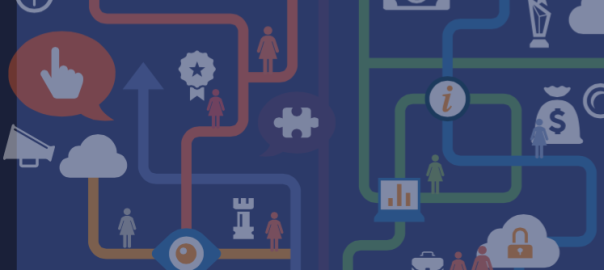
The Value of Sex-Disaggregated Data
The Value of Sex-Disaggregated Data
Governments and agencies around the world are increasingly prioritizing full financial inclusion of women, but moving the needle is impossible without data on how many women actually have access to financial services and through what channels. The Global Banking Alliance for Women (GBA), in collaboration with the Inter-American Development Bank (IDB) and Data2X, has released this report based on interviews with over 50 regulators, policymakers, International Finance Institutions (IFIs) and bankers from around the world that reveals just how this data could inform better policies and prompt the private sector to take on this missed market opportunity.
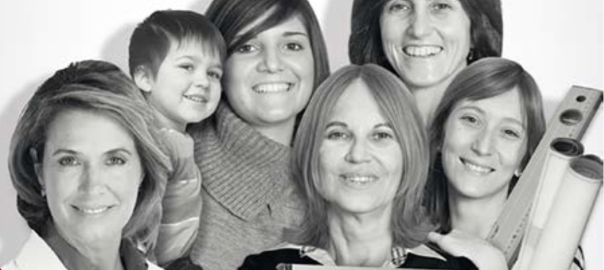
Estudio de Caso: BLC Bank
Estudio de Caso: BLC Bank
El segundo en la serie de estudios de caso de AGB que se enfocan en historias de éxito de miembros que se están incursionando en el mercado de las mujeres esta ya disponible para su descarga. Centrándose en el banco libanes BLC Bank, el informe ofrece una visión detallada de como el banco implemento su programa, convirtiéndose en un diferenciador competitivo y resultando en increíble crecimiento. (English version)

GBA Case Study: BLC Bank
GBA Case Study: BLC Bank
The second in the GBA Case Study series on members’ Women’s Market success stories is now available for download. Focusing on Lebanese member BLC Bank, the report offers a detailed look at the Bank’s use of its Women’s Market program as a competitive differentiator and the incredible growth it has experienced through the platform. (Version en español)

Westpac: SME & Women’s Markets
Westpac: SME & Women’s Markets
This presentation on Westpac’s approach to SMEs and Women’s Markets was developed for its 2015 Study Tour.
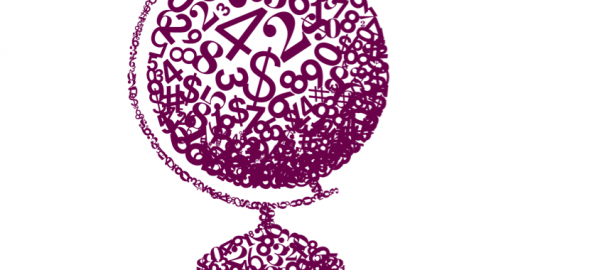
Westpac Davidson Institute
Westpac Davidson Institute
This presentation on the Davidson Institute was developed for Westpac’s 2015 Study Tour and discusses the Institute and Westpac’s approach to financial education.

BLC Bank Women Empowerment Initiative – SBBN
BLC Bank Women
Empowerment Initiative – SBBN
This is a presentation BLC Bank made to the Small Business Banking Network in February 2013. It presents a comprehensive overview of BLC’s Women’s Market program, including top leadership buy-in (the bank’s head is a signatory to the UN Women’s Empowerment Principles), staff training, marketing & media, collateral-free loans for established (2+ years in operation) businesses, emphasis on building opportunities for women’s networking, business development services, financial literacy, and performance management & evaluation.

Inspiring Women in Enterprise
Inspiring Women in
Enterprise
This is a presentation RBS made to the Small Business Banking Network in February 2013. It features an overview of the size of the Women’s Market in RBS’s UK home as well as a discussion of the bank’s multiple global initiatives to expand and improve service to women. It also addresses RBS’s commitment to workforce and vendor/supplier diversity.
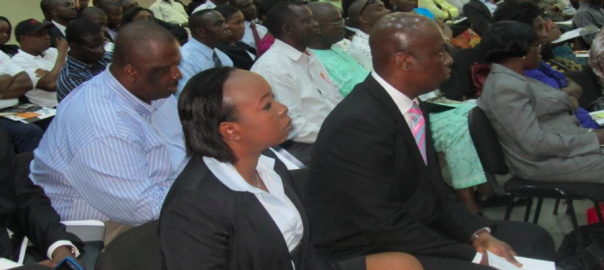
Delivery of Innovative Products & Services for Women
Delivery of Innovative
Products & Services for Women
This presentation was made to the Small Business Banking Network in February 2013. It is an excellent source of statistics on the SME landscape in Nigeria as well as the approach Diamond takes to defining its customer segments and serving each one. It also offers a discussion of the importance of banks’ provision of networking and educational opportunities for its SME clientele.

Women in Business 2011
Women in Business 2011
This presentation was made to the 2011 GBA membership at that year’s Annual Summit. It offers a good overview of the SME landscape in Uganda, including degree of access to finance and market opportunity for banks. Also included are a comprehensive discussion of dfcu’s Women in Business program and its results to date.

Women in Business
Women in Business
This is a presentation made by Alliance CEO Inez Murray at the IFC/Financial Times “Sustainability Days” conference in February 2013. It is a good source of statistics and information on the business case for serving the Women’s Market, an overview of the steps to take in building a Women’s Market program, and a presentation of the cases of Fleet Bank Boston and Westpac Australia. It also offers an extensive discussion of customer segmentation.

Women in Business
Women in Business
Proprietary research commissioned by Westpac examines interest in, and actual ownership of, small and medium enterprises among women, broken down by different age groups and other segments. Among notable findings: Women business owners are very happy with the choices they have made; only half of women who expressed an interest in starting their own business had an actual concrete plan to do so; one in three women felt women tend to help each other more than men do; and one in ten prefers to deal only with other women.

Banks and SMEs: Raising the Game
Banks and SMEs: Raising the Game
This IDB report presents results obtained from the fourth survey on the views and opinions of directors, managers and deputies of the SME division of 109 banks in Latin America and the Caribbean. 73% of respondents expect an increase in their SME portfolios, and 83% expect the financial position of SMEs to improve in the next two years.

Women-Owned SMEs: A Business Opportunity for Financial Institutions
Women-Owned SMEs: A Business Opportunity for Financial Institutions
This report seeks to estimate the global and regional size of the women-owned SME market for financial services operating in the formal sector. It looks at the financing gap they face, as well as common financial and non-financial barriers faced by women entrepreneurs. The report also provides an estimate of the IFC’s global reach to formal women-owned SMEs.

Las Pymes de América Latina el Caribe: Cerrando la Brecha Para los Bancos de la Región
Las Pymes de América
Latina el Caribe: Cerrando la Brecha Para los Bancos de la Región
Este informe es la versión española del documento encontrado aquí.

SMEs in Latin America and the Caribbean: Closing the Gap for Banks in the Region
SMEs in Latin America and the Caribbean: Closing the Gap for Banks in the Region
This report — a collaboration between the IDB’s Multilateral Investment Fund, Inter-American Investment Corporation and the Structured and Corporate Finance Department, as well as the Latin American Banking Federation (FELABAN) — presents general results of the sixth survey of 100 banks across 21 countries in Latin America and the Caribbean. It includes a detailed analysis of the responses according to the size and location of the entities, as well as other behaviors and aspects of the SME segment.

A Business to Call Her Own: Identifying, Analyzing and Overcoming Constraints to Womens’ Small Businesses in Latin America and the Caribbean
A Business to Call Her Own: Identifying, Analyzing and Overcoming Constraints to Womens’ Small Businesses in Latin America and the Caribbean
This study by the IDB’s Multilateral Investment Fund identifies key barriers to women’s businesses globally and evaluates the degree to which they constrain women’s business growth in Latin America. These barriers include a lack of access to financial products and services, risk aversion, social conventions, family responsibilities, education, and training and technology.

Doing Business: Women in Africa
Doing Business: Women in Africa
This report from Alliance member SELFINA profiles seven women entrepreneurs from across Africa and explores regulatory and other obstacles they overcame to create and expand enterprises.

Strengthening Access to Finance for Women-Owned SMEs in Developing Countries
Strengthening Access to
Finance for Women-Owned SMEs in Developing
Countries
As access to finance is repeatedly identified as a major constraint to women entrepreneurs, this GPFI and IFC report sets out to analyze the issues involved in improving access to finance for women-owned businesses. It also aims to identify scalable financing models that can be replicated in G20 and interested non-G20 countries looking to increase the opportunities of women-owned businesses as those nations further develop their private sector.

Banking on Women in Business: Exim Bank
Banking on Women in
Business: Exim Bank
This IFC Case Study on Exim Bank provides a brief overview of the increasingly competitive financial services sector in Tanzania, the opportunity that women-owned small & medium enterprises represent, and possible tactics for tapping the woman-owned SME market.

Banking on Women in Business: Access Bank
Banking on Women
in Business: Access Bank
This IFC Case Study offers a brief description of the business landscape for women in Nigeria, as illustrated by the story of Muni Shonibare, a Nigerian woman entrepreneur with a furniture-making business, whose clients included Mobil and Hilton Hotels. Access Bank provided her with $800K in expansion capital.

